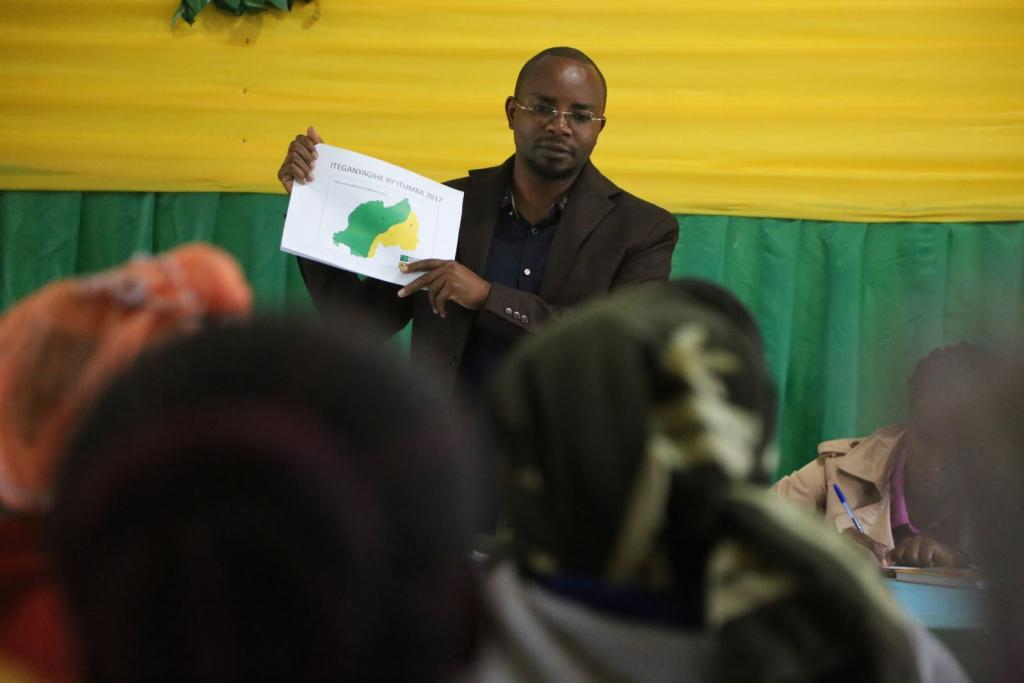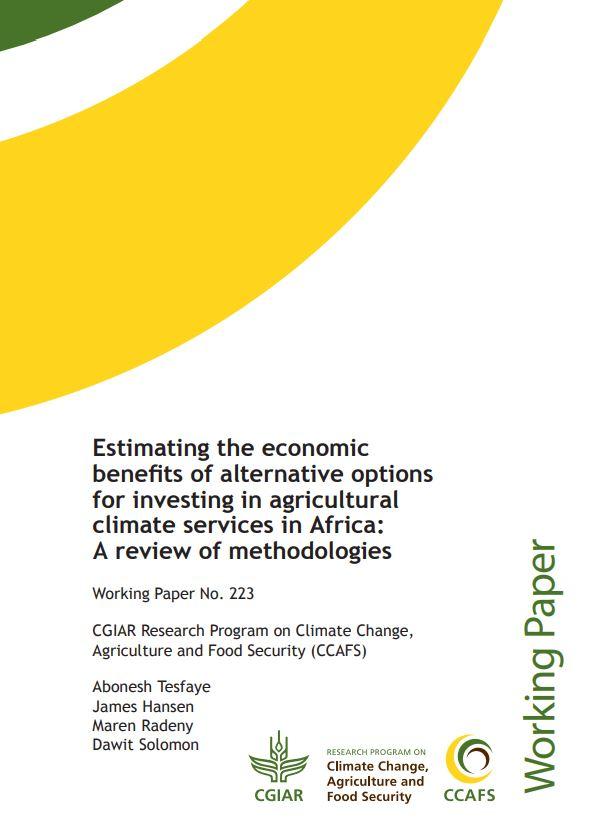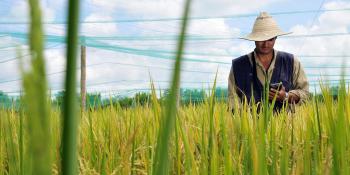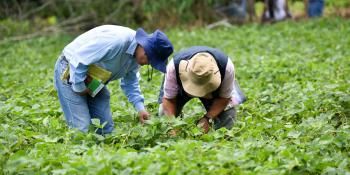Climate services in agriculture: What are the costs and benefits of investment for Africa?

New paper reviews different evaluation methods for informing stakeholders about the benefits of different options for investing in climate services for African agriculture.
Extreme climate events such as droughts, floods, dry spells, heatwaves and storms are becoming more frequent and severe around the world. Smallholder farmers in Africa are especially vulnerable to weather variability, which can occur both between seasons and within a season.
The benefits of climate services
Climate services empower smallholder farmers, particularly in climate-sensitive developing countries such as those in Africa, and allow them to reduce climate-related losses and enhance benefits, protecting lives, livelihoods and property.

USAID-Rwanda visit to the Rwanda Climate Services for Agriculture Project. Photo: A. Nyandwi (MINAGRI Rwanda)

There are many promising initatives across Africa that aim to improve the access to and quality of climate information services. On the national scale, however, funds for public sector services, including climate services, have come under increasing budgetary pressure. Therefore, there is need to make decisions on how to use the often scarce financial resources for climate services in agriculture most effectively.
Decisions to invest in new services or improvements to existing ones are best made on the basis of evidence of the benefits that the changes are predicted to produce, relative to the costs. A recently published working paper by the CGIAR Research Program on Climate Change, Agriculture and Food Security (CCAFS) reviews the suitability of ex-ante evaluation methods for informing funding agencies, the private sector, and other national and regional stakeholders about the benefits of different investment options in climate services.
Approaches for evaluating the benefits of climate information
The paper classifies the approaches available to quantitatively estimate the benefits of climate information into four categories: economic modelling, stated preference, avoided loss and benefit transfer.
The review considers relevant and recent studies that used methods in these categories, and details how the methods are used to estimate the benefits of investing in climate services for the agriculture sector in Africa.
The authors explain the benefits of the four types of approaches as follows:
- Economic modelling has so far been used mainly for understanding the scope for using climate information (primarily weather and seasonal forecasts) for agricultural management decisions.
- Stated preference is a reasonably simple and cost-effective approach for estimating the subjective value that individuals place on existing climate services.
- When estimation of the benefits of climate services in the agriculture sector is conducted with limited time and resources, as is common in Africa, the benefit transfer method can be used to estimate value in one geographical location based on evidence from another.
- The avoided loss approach is a good fit for assessing the contribution of early warning information to disaster risk management, including interventions designed to protect farmer and pastoralist livelihoods from frequent climate variabilities and extremes and in the face of climate-driven food crises, particularly in East Africa.
The paper concludes that all of the methods reviewed can provide the necessary information to convince stakeholders that investing in climate services in the continent is worthwhile. The cases reviewed in the study support the generalization that climate information services are beneficial to the agricultural sector in Africa.
Working with partners, CCAFS continues to help farmers across Africa, Asia and Latin America with climate services that meet their needs and the institutions that support them, enabling the transition toward climate-smart agricultural systems and resilient livelihoods.
Download the working paper: Tesfaye A, Hansen J, Radeny M, Solomon D. 2018. Estimating the economic benefits of alternative options for investing in climate services in Africa: A review of methodologies. CCAFS Working Paper no. 223. Wageningen, the Netherlands: CGIAR Research Program on Climate Change, Agriculture and Food Security (CCAFS).
Read more:
- Blog: Helping farmers adapt to climate change through climate services
- Blog: Partnering with national meteorological services to support farmers in Africa
- Flagship webpage: Climate Services and Safety Nets
The working paper is an output of USAID’s Africa Climate Services project, and it was made possible by the generous support of the American people through the United States Agency for International Development (USAID). The opinions expressed are those of the authors and do not necessarily reflect the views of USAID or the United States Government.
Lili Szilagyi is the Communications Consultant at CCAFS East Africa. Catherine Mungai is the Partnerships and Policy Specialist at CCAFS East Africa.



